In 1975 our friend Nina came to live with us. At the time we were farming a piece of rural land along with a handful of friends, and Nina was looking for the peace and quiet we had in quantity. She settled in quickly, and soon was growing a vegetable patch, contributing delicious dishes to our weekly potluck, and sharing her herbal and culinary knowledge. When spring came, she introduced us to the Austrian tradition of hanging eggs and other ornaments on tree branches during the Easter Season. She gave my children a set of wooden ornaments that year, and we are still hanging them every Easter. 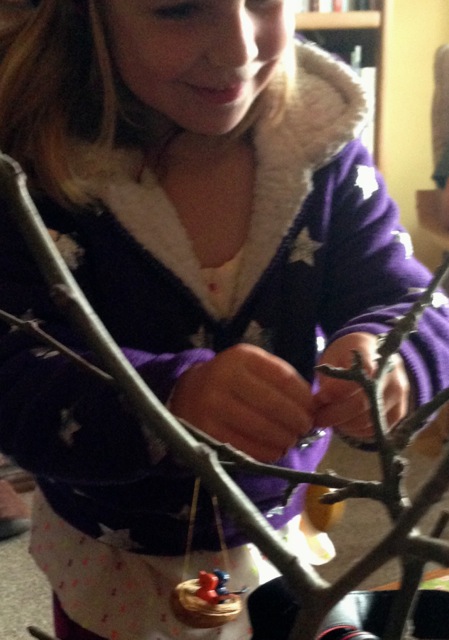
I’ve made some minor repairs to the ornaments, which include birds in nests, colored eggs, and several charming rabbits in overalls and dresses, and this year I ordered three new German bunnies through Amazon. The tradition is secure in our home; my grown children expect it, and now I have a new helper to decide where each ornament should hang. And every year, when I take out the little green box cheerfully labeled Frohe Ostern (Happy Easter), I think fondly of Nina and our time together on the land.
The European tradition of decorating branches of trees and bushes with eggs for Easter is centuries old, although I haven’t been able to find a specific historical root. The egg, of course, is an ancient symbol of life. According to Wikipedia, in Germany and Austria blown and decorated eggs have been hung on branches of outdoor trees and bushes for hundreds of years, and more recently on cut branches inside homes. The tradition seems to be catching on in the United States as well. Even Martha Stewart has a version of the Easter Egg Tree.
The ornamental tree itself can be made from budding or flowering fruit tree branches arranged artfully in a vase. Some people also use bush branches such as ornamental quince, flowering forsythia, or pussy willow. It’s important that the branches be woody in order not to bend under the weight of the ornaments; although this can be offset somewhat by hanging decorated blown eggs instead of the wooden type that we use. I usually just set the branches into a vase of water, but more artistic decorators use Mod Podge or florist’s clay at the bottom of the vase to keep the branches anchored.
The collecting of branches and hanging of ornaments has a rather significant effect on me. Not only does it invoke the memories of long ago when a dear friend far from home shared with us her family tradition, but it also brings with it memories of each of the years that have passed since — of each of my children and now my grandchild carefully placing the ornaments on just the right branches, the squabbling that comes with a plurality of opinions regarding which branches those are, and the delight when it is finished and is placed on our dining room table. And it tells me that spring is here, even when looking out the window doesn’t necessarily invoke that message. The Easter Tree is my reminder that we made it through winter and that we are all about to undergo a spiritual rebirth. That is the message that Nina brought to us with her Osterschmuck Sortiment (Easter Decoration Assortment), and I am so grateful for it.
It was a dry year when Nina was with us too, but it rained the day after she moved away. I recorded her departure with a poem.
Goodbye My Friend
It rained at last after you left
I stood barefoot
Watching the chickens play soccer with an apple core
Straining in the silence
To hear you moving about the garden
I thought I heard your flute
Whistling wistful notes
But no
All about me was quiet
Share this post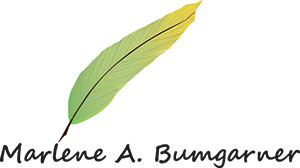
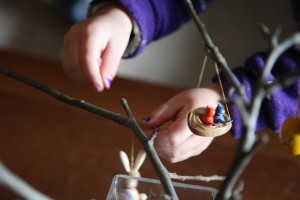
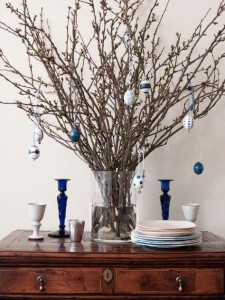

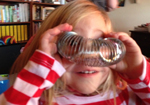

Nice memories. A place where required to sit When thinking. 🙂
Hmmmm, I’ll have to think about what that means. It seems like we sat a lot in those days. Did time move more slowly there?